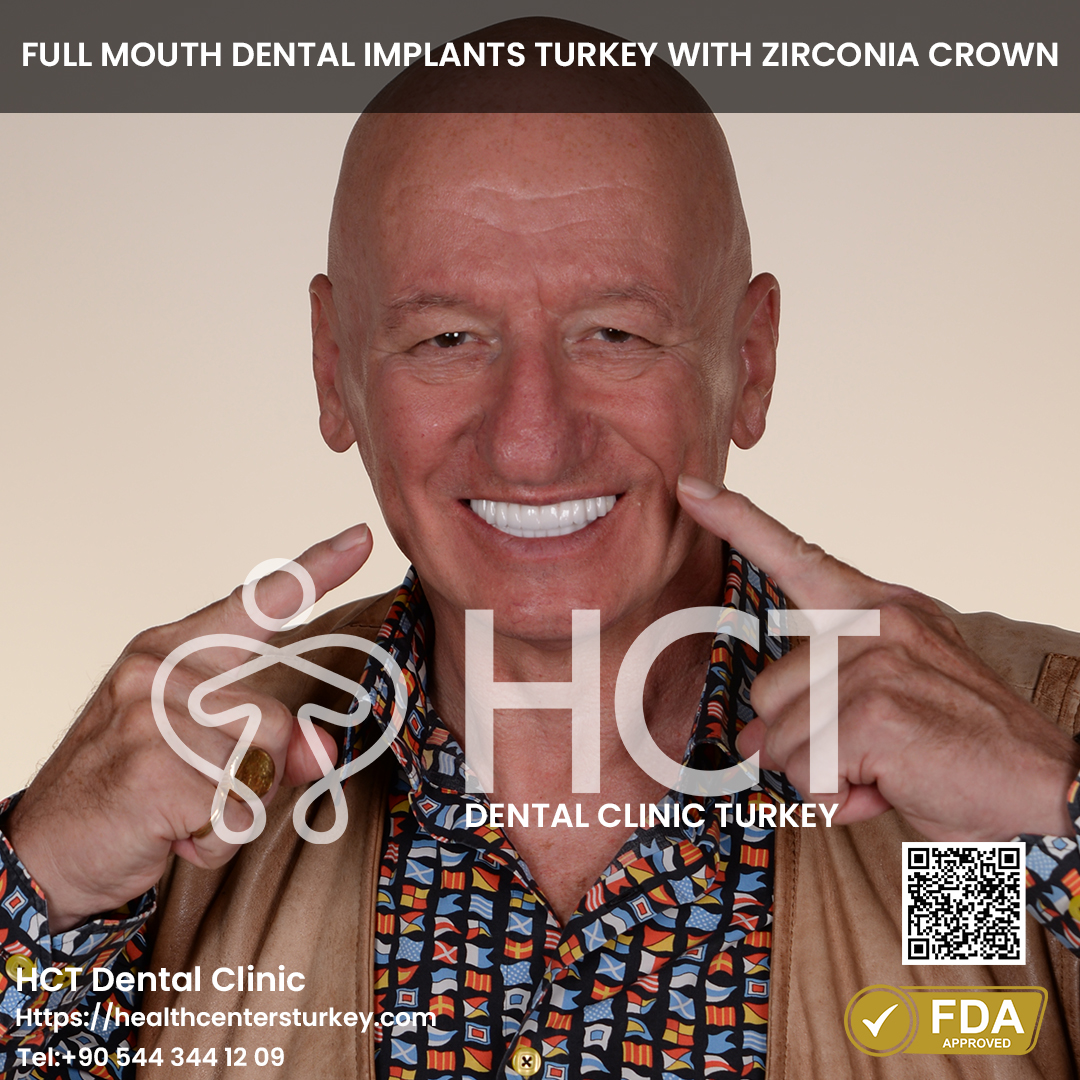Discover Complete Oral Treatments within Turkey
Discover Complete Oral Treatments within Turkey
Blog Article
Discover Top Dental Treatments in Turkey for Implants, Veneers, and More
Dental implants have turn out to be a well-liked answer for those looking to replace missing teeth. Understanding how these implants can affect adjacent teeth is essential for anybody considering this procedure, as nicely as for dentists and specialists concerned in dental care.

One important facet is that dental implants are designed to be anchored into the jawbone, which implies they are independent of adjacent teeth. Unlike dental bridges, which frequently require the alteration of neighboring teeth, implants can fill the hole without compromising the health or structure of these surrounding teeth.
This independence helps keep the integrity of adjacent teeth. When a tooth is lost, there is normally a natural tendency for neighboring teeth to tilt or shift into the empty space. Such motion can result in misalignment, which can have an effect on chunk and overall oral health. By placing an implant, you effectively prevent this potential shift, selling better alignment in the long term.
Exploring the Latest Trends in Dentistry in Turkey
Additionally, dental implants assist maintain bone density in the jaw. A natural tooth root offers stimulation to the surrounding bone, maintaining it healthy and powerful. When a tooth is missing, the bone can begin to deteriorate because of lack of stimulation. With a dental implant mimicking a natural root, bone loss can be minimized, which not directly advantages adjacent teeth by preserving the overall structure of the dental arch.
While dental implants are advantageous, improper placement can impression neighboring teeth. If an implant is positioned too shut to a different tooth, it may exert undue stress on that tooth, leading to discomfort or potential damage. Proper planning and imaging techniques are essential for avoiding such issues.
Increase Your Self-Esteem by Achieving a Beautiful Smile
Moreover, maintaining good oral hygiene is essential after receiving an implant. If not properly cleaned, surrounding teeth might turn into vulnerable to dental issues such as decay or gum disease. This underscores the importance of diligent oral care following the procedure to make sure both implants and adjacent teeth stay wholesome.
Regular dental check-ups are additionally vital for monitoring the health of surrounding teeth. Dentists can determine any shifts or potential problems early, allowing for timely interventions. This proactive approach ensures that both the implant and adjacent teeth can coexist with out problems.
Enjoy Exceptional Dental Treatments on Your Trip
Another consideration is the influence of implants on chunk force. When a single tooth is missing, the load of chewing might shift to adjacent teeth, doubtlessly leading to put on or pressure. Implants restore proper chunk dynamics by redistributing forces within the mouth, which may protect surrounding teeth from undue stress.
Some patients could raise considerations about the appearance of dental implants. Well-placed implants can blend seamlessly with present teeth, bettering overall aesthetics. In contrast, failing to switch a missing tooth can lead to aesthetic issues, together with collapsing of facial structure and adjustments in smile dynamics.
It's also worth discussing the psychological features of dental health. Experiencing tooth loss can adversely have an result on one’s vanity and willingness to interact socially. By restoring your smile with implants, you can positively affect not solely your oral health but also your emotional well-being.
Long-term success of dental implants often hinges on varied factors, including the patient's health, maintenance habits, and the standard of the preliminary process. If adjacent teeth are wholesome and properly cared for, the chances are high that they may proceed to thrive alongside the implants.
Discover Budget-friendly Dental Services across Turkey
In conclusion, dental implants play a crucial role in not just restoring individual smiles, however in preserving the health and structure of adjacent teeth. By stopping shifting, sustaining bone density, and redistributing chunk forces, implants can ensure that surrounding teeth stay in optimum condition. Proper placement, hygiene, and regular dental visits can further enhance the benefits of dental implants, leading to a healthier, more confident smile for years to return.
- Dental implants might help keep the alignment of adjacent teeth by offering a secure anchor, preventing adjacent teeth from shifting into the gap left by a missing tooth.
- The presence of an implant might stimulate bone progress within the jaw, helping to preserve the overall structure and integrity of the adjacent teeth.
- Unlike traditional bridges, implants do not require alteration of surrounding teeth, thus preserving their strength and anatomy.
- Implants can enhance the distribution of bite forces evenly across the dental arch, reducing the stress on neighboring teeth throughout chewing.
- A well-integrated dental implant can decrease the danger of bone loss in the area surrounding adjacent teeth, contributing to their long-term health and stability.
- The aesthetics of adjacent teeth can be improved because of the support provided by implants, which might result in higher general cosmetic outcomes.
- With proper placement, dental implants can prevent gum recession round adjacent teeth by sustaining enough dental architecture.
- Implants can help mitigate the risks of periodontal disease in close by teeth by selling healthy gum tissue and providing a washable floor.
- Long-term success of dental implants can lead to improved oral hygiene routines, which in turn benefits the health of surrounding teeth.
- The improved practical ability of an implant can encourage sufferers to chew extra successfully, thus increasing saliva manufacturing and aiding in the protection of adjacent dental tissues.undefinedHow do dental implants affect adjacent teeth?
What are dental implants and the way do they work together with adjacent teeth?undefinedDental implants are artificial tooth roots which might be surgically placed into the jawbone. They present a steady basis for replacement teeth whereas guaranteeing minimal disruption to adjacent teeth, preserving their integrity and alignment. What to Expect from Dental Procedures in Turkey.
Get the Best Dental Treatments and Services at Affordable Rates in Turkey
Can dental implants cause problems for nearby natural teeth?undefinedGenerally, dental implants do not harm adjacent natural teeth. However, if the implant just isn't placed appropriately or if there’s insufficient oral hygiene, it may lead to issues corresponding to adjacent tooth decay or gum disease.

Will getting a dental implant change the means in which my adjacent teeth feel?undefinedMost sufferers report no change within the sensation of adjacent teeth after implant placement. However, it might take a while to adjust to the presence of the implant, just like how one may adapt to other dental restorations.
Can dental implants help preserve the health of adjacent teeth?undefinedYes, dental implants can help maintain the health of adjacent teeth by stopping bone this post loss that may happen after tooth loss. This preservation supports the alignment of nearby teeth, reducing the risk of shifting or misalignment.
Comprehensive Dental Packages Featuring Cosmetic Options
Do I need to modify adjacent teeth when getting an implant?undefinedTypically, adjacent teeth do not want alteration when inserting an implant. This is doubtless one of the advantages of dental implants over conventional bridges, which regularly require reshaping adjacent teeth for help.
How does the healing process of an implant have an result on close by teeth?undefinedThe healing process entails osseointegration, the place the implant fuses with the jawbone. During this time, adjacent teeth remain unaffected and retain their function, although it’s important to comply with post-operative care recommendations. Personalized Oral Health Strategies to Fit Your Lifestyle.
Outstanding Dental Services Focused on Customer Satisfaction
Can dental implants lead to bone loss round adjacent teeth?undefinedIf dental implants are positioned properly and cared for adequately, they should not result in bone loss around adjacent teeth. In fact, they may help stimulate bone progress, combating the natural bone loss that often follows tooth extraction.
What precautions ought to I take to protect adjacent teeth after getting an implant?undefinedRoutine dental hygiene, including brushing and flossing, together with regular dental check-ups, is essential. Avoiding onerous foods and following your dentist’s aftercare directions may also protect each the implant and adjacent teeth.
Is it widespread for adjacent teeth to shift after an implant is placed?undefinedIt's not typical for adjacent teeth to shift after an implant placement, especially when the implant is click site positioned correctly and maintained correctly. If there’s any movement, it could be because of different underlying issues that must be evaluated by a dental professional. Report this page